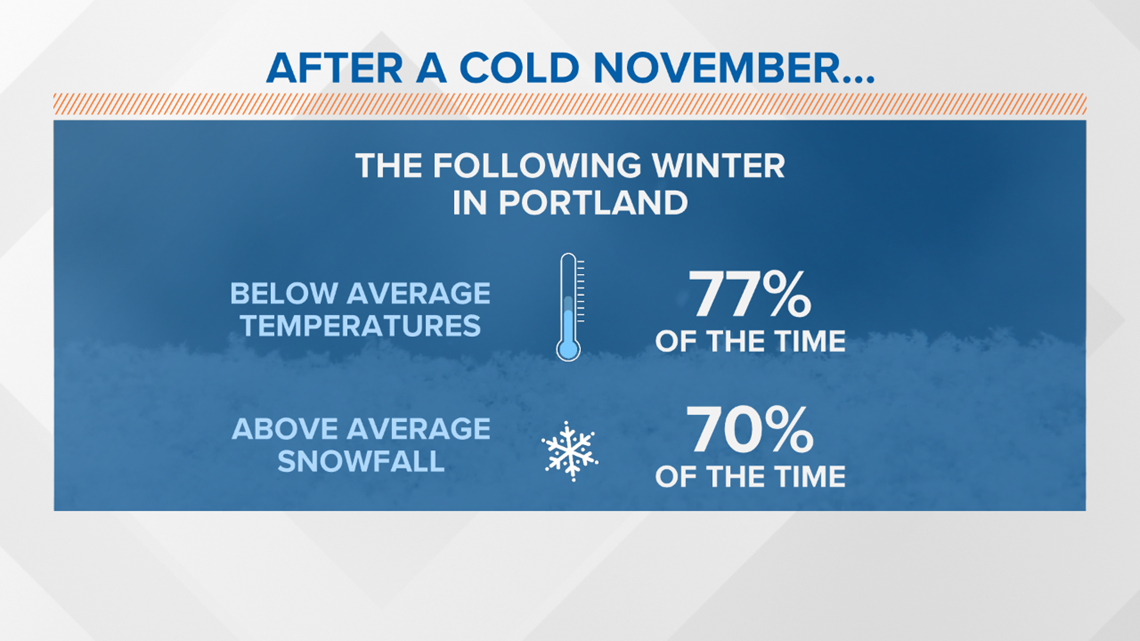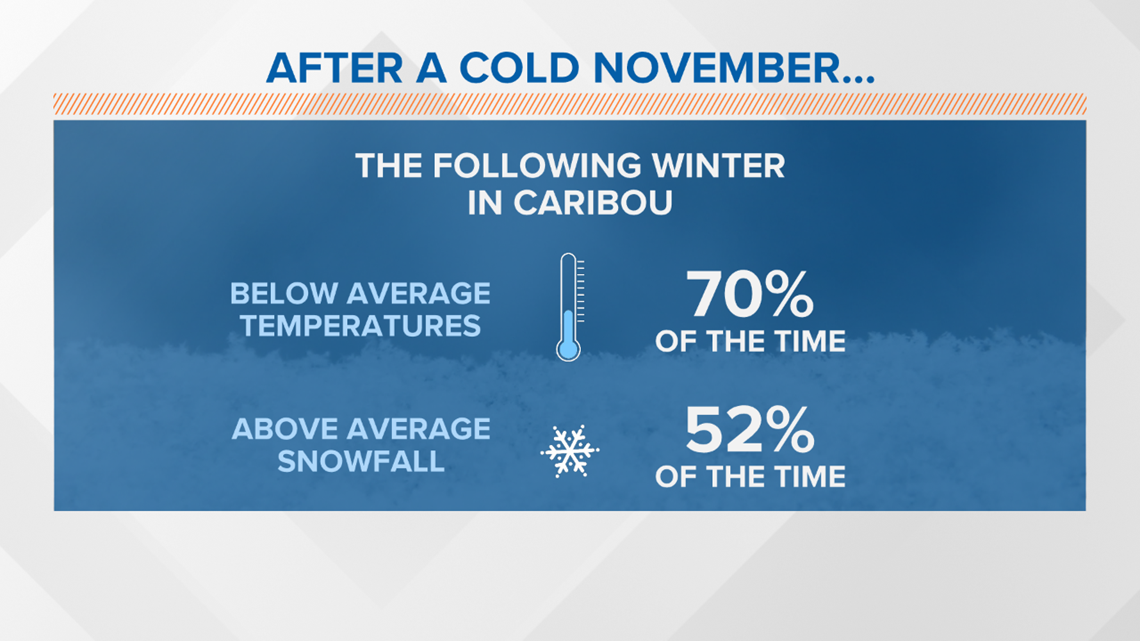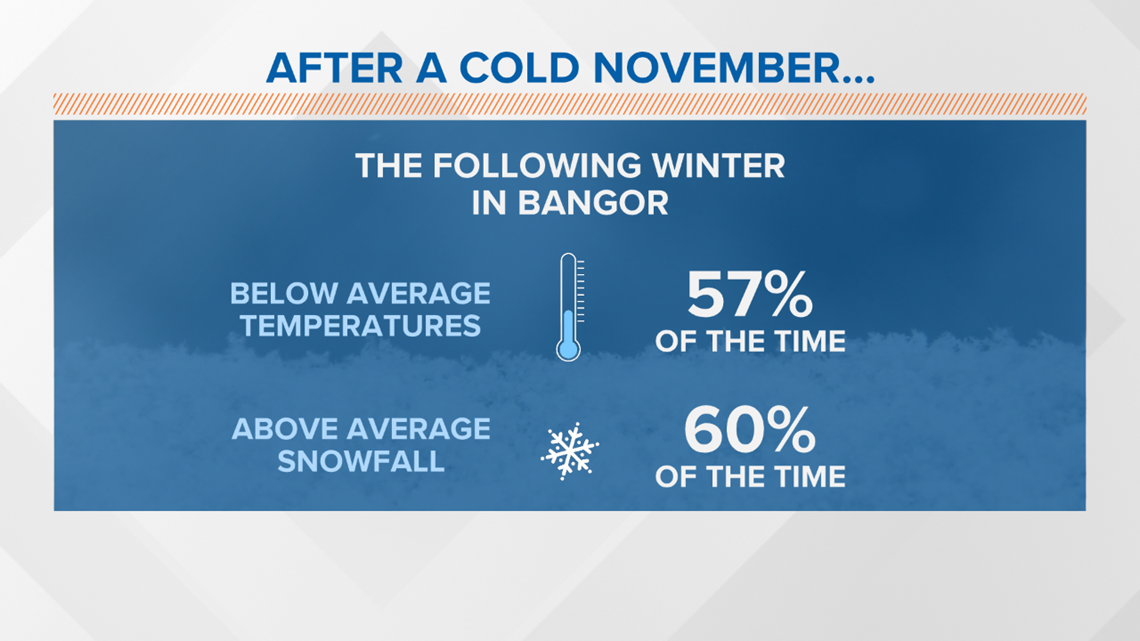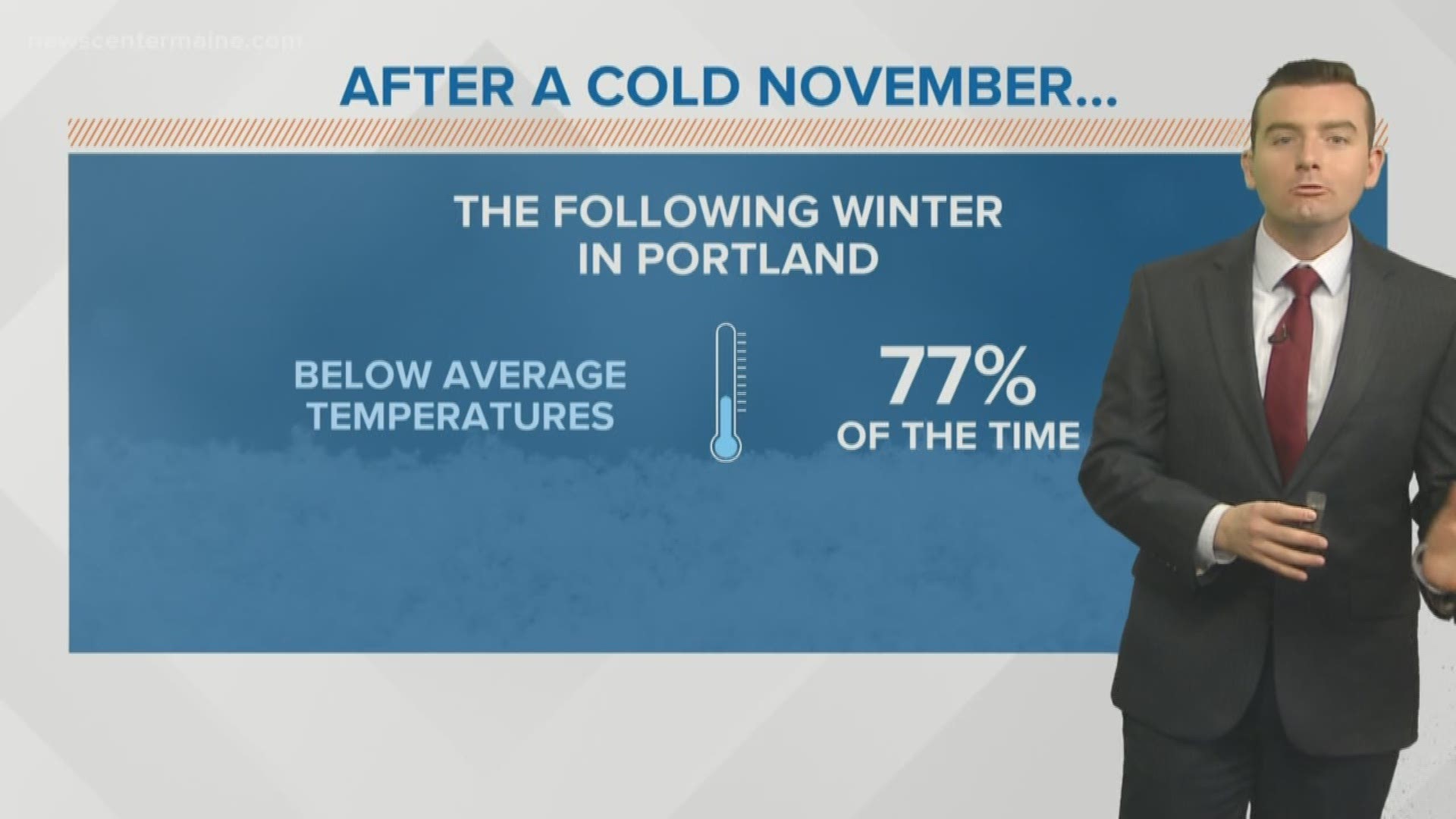MAINE, USA — Question: This November has been very cold. What could this mean for the following winter?
We've been hearing this one a lot lately.
Let me start by making clear: This run of the numbers is just for fun. Even though there may be a correlation, it doesn't mean a cold November causes a cold winter.
But considering seasonal forecasting is only a little better than the flip of a coin, when considering all of the meteorological factors, what happens in November could help tip the scale in one direction or the other.
For simplicity here, we'll look at meteorological winter -- December, January and February.
In Portland, the reliable record for temperature and precipitation goes back 78 years. There have been 44 Novembers with below average temperatures. Of those, the following winters have also had below average temperatures 34 times, and above average snowfall 31 times.
That's a pretty convincing pattern! It's the strongest correlation of the three climate sites in the state.


Caribou's record goes back 79 years and it's quite similar. Of the 45 Novembers with below average temperatures, 34 of the following winters were also cold.
One difference? 23 of the following winters were snowy, a bit lower than Portland.


Bangor's period of record isn't as good; there are missing gaps of both temperature and precipitation data.
But for the complete years we have, the trend is somewhat apparent too: More of then than not, after a cold November, winter is colder and snowier than average too.



